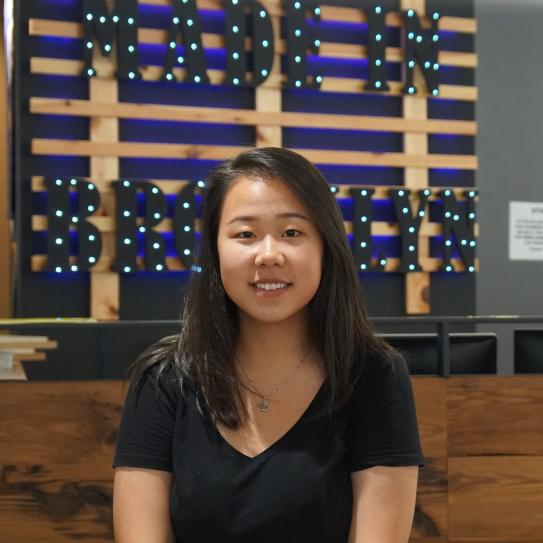
What does it mean to you to be an engineer?
We break problems down into component parts and remove the roadblocks to solving them.
How is your field being redefined for today and tomorrow’s needs? What contributions do you hope to make to this redefined landscape?
Mechanical engineers are needed in so many different fields; that’s always been the case, but as new products and services are introduced, the need for our skills increases. For example, I’m completing a co-op at Procter & Gamble, and after graduation, I’ll be going to California to work as a manufacturing design engineer at Apple. That means when a new product is first conceived of, I’ll work with a team to figure out how we can make it. How can we do that in a sustainable, scalable way? Will it be accessible to the differently abled and affordable? How can we ensure the quality?
How did NYU Tandon help you redefine yourself?
I’ve had more formative experiences at Tandon than I could possibly list. I took part in a Design for America project and got to work abroad in Japan, and I was on a team that competed in the Forbes Idea Incubator. I’m a first-generation college student, so I had to work, and I was lucky enough to get a job as a TA in the MakerSpace, which showed me how satisfying it is to mentor others in STEM. I also served as a TA in ENG 1001 because I realized that the courses I took freshman year taught me to think like an engineer and introduced me to how expansive the discipline is. I had wonderful role models like Victoria Bill and Anne-Laure Fayard, who showed me what women in STEM can accomplish, and professors like Nicholas DiZinno and Joseph Borowiec, who can make even the most difficult topic meaningful. I should also mention my internship at Boeing, because learning how airplanes are built is obviously a very cool thing. (My actual duties involved supporting the skin damage prevention and repair efforts for the Boeing 777, and I led a team of Production Engineers in identifying mitigation plans for areas with high defect occurrence.)

